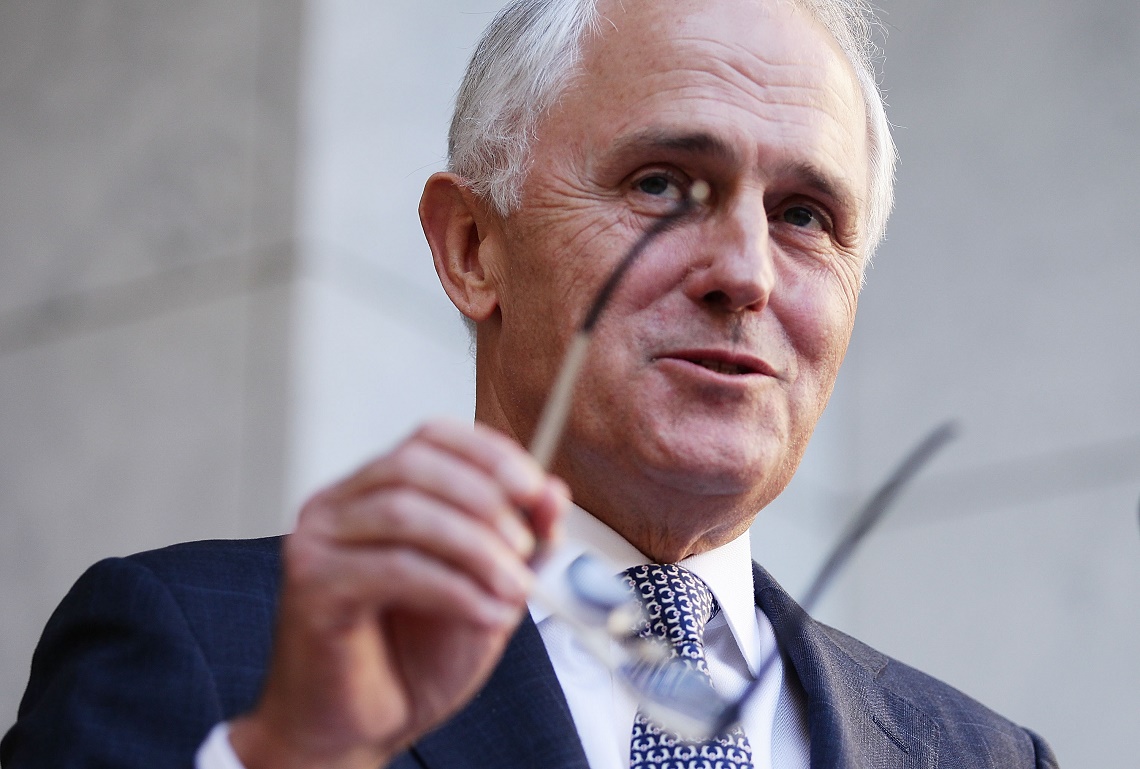
Australian prime minister Malcolm Turnbull. Photo: Getty Images
The government’s innovation statement includes over twenty policies, several of which are aimed at startups and investors. Some are new, some are just re-branded existing ideas.
Provided they pass the parliament, most of the policies would not take effect until the 1st of July 2016, and some even later.
Here they all are the ones startups need to worry about:
More early-stage capital
The innovation statement includes tax incentives for early-stage investors – a 20% tax offset on investments in startups, capped at $200,000 per investor per year. Further, investors who hold their stake in startups for more than 3 years can realise a capital gains tax exemption.
The tax deduction and capital gains tax exemption are valid only for investments in companies that are less than three years old, are not listed on a stock exchange, and have expenditure and income of less than $1 million and $200,000 in the previous year, respectively.
The tax incentives come alongside recently introduced legislation to ensure equity crowdfunding is a possibility for some startups.
Less restrictions on venture capital
Partners in early stage venture capital funds will receive also receive a 10% tax offset on the capital invested during the year.
Further, the maximum size of an early stage venture capital fund will be increased to $200 million from $100 million, and partners will no longer be required to divest from a company once its stake exceeds $250 million.
Bankruptcy laws
The default bankruptcy period will be reduced from three years to one. Directors will be protected from personal liability for insolvent trading if they appoint a restructuring adviser to develop a turnaround plan.
Contracts that terminate solely because a company is insolvent will be unenforceable if a company is undertaking a restructure.
Biomedical Translation Fund
The government is establishing an independent, $250 million fund to invest in “promising biomedical discoveries.”
The aim is to commercialise medical research conducted by public institutions, and stimulate more private sector investment after initial seed rounds.
Expanding STEM and helping students use digital technology
The government will spend $13 million over five years to encoruage women and girls to enter and remain in STEM careers. This will include expanding a Gender Equity pilot program and partnering with the private sector.
$51 will be spent over five years to create programs for students grade 5 – 12, and support teachers improving digital literacy.
Landing pads and collaboration for going global
The government will create five “landing pads” in Silicon Valley, Tel Aviv and three other locations to support Australian startups going global.
$22 million in seed funding will also be used to assist collaborations with international research bodies.
Taxation
Changes to the way company losses are treated will allow businesses to claim previous losses even after they pivot to new opportunities, provided they use similar assets and generate income from similar sources.
“Intangible assets” such as patents or copyright will now be treated the same as other assets, for taxation purposes. The ability to depreciate intagible assets at a similar rate to other assets will reduce the cost of investment in intellectual property.
Visas
A new visa program for entrepreneurs will be introduced, to allow people with ideas and financial backing to come to Australia.
A pathway to permanent residency for postgraduate students in STEM and ICT fields will be created – graduates with these qualifications will be given more points towards their applications.
Incubators and accelerators
The government is setting aside $8 million to develop new incubators and accelerators.
The program will also see “Commercialisation Advisers” and other experts embedded within programs.
Employee share scheme
Disclosure documents given to employees under an employee share scheme will not need to be made public – startups were concerned about the cost of producing the documents and the potential for commercially sensitive information to leak.
A digital marketplace
The government will create a digital marketplace so that startups can more easily tender for government contracts.
The government currently spends more than $5 billlion a year on ICT, while the process to win a government contract can cost as much as $10,000.
